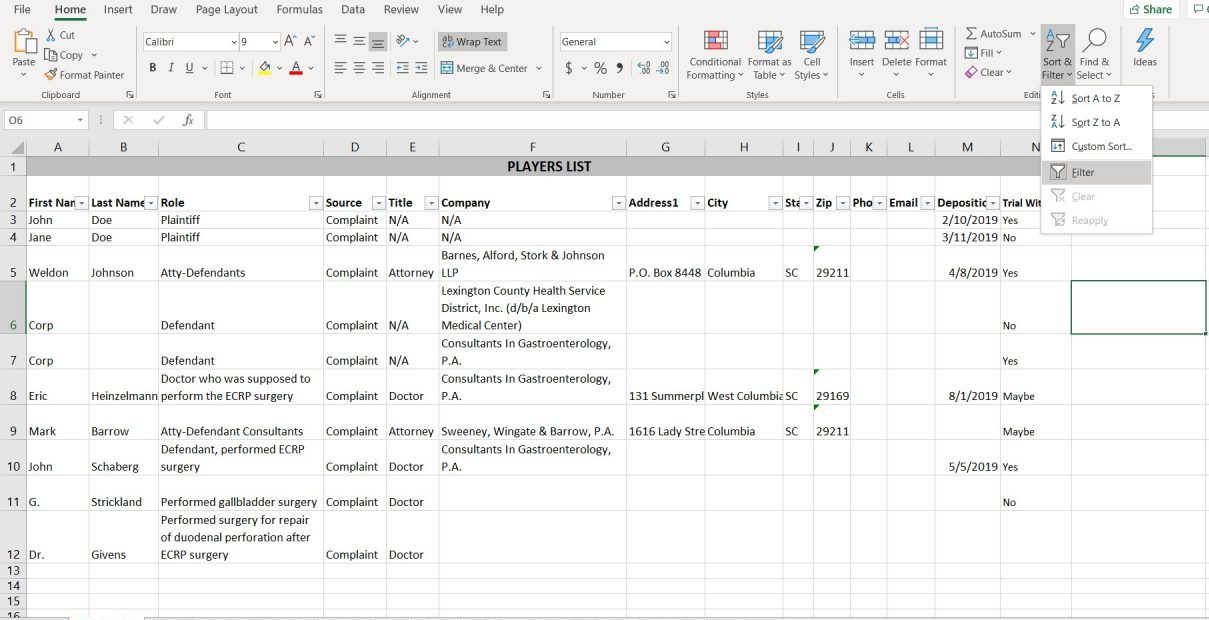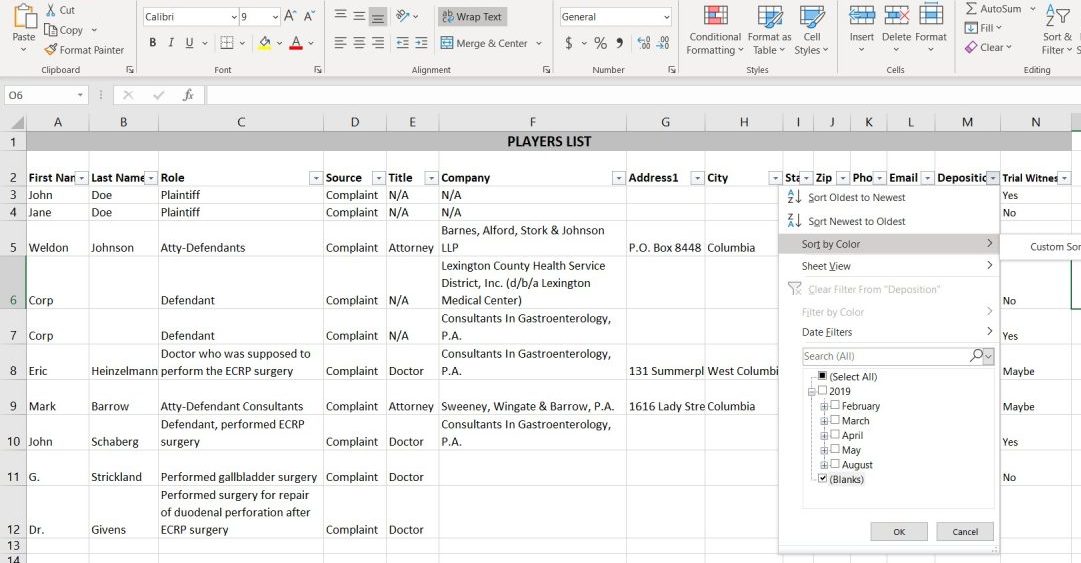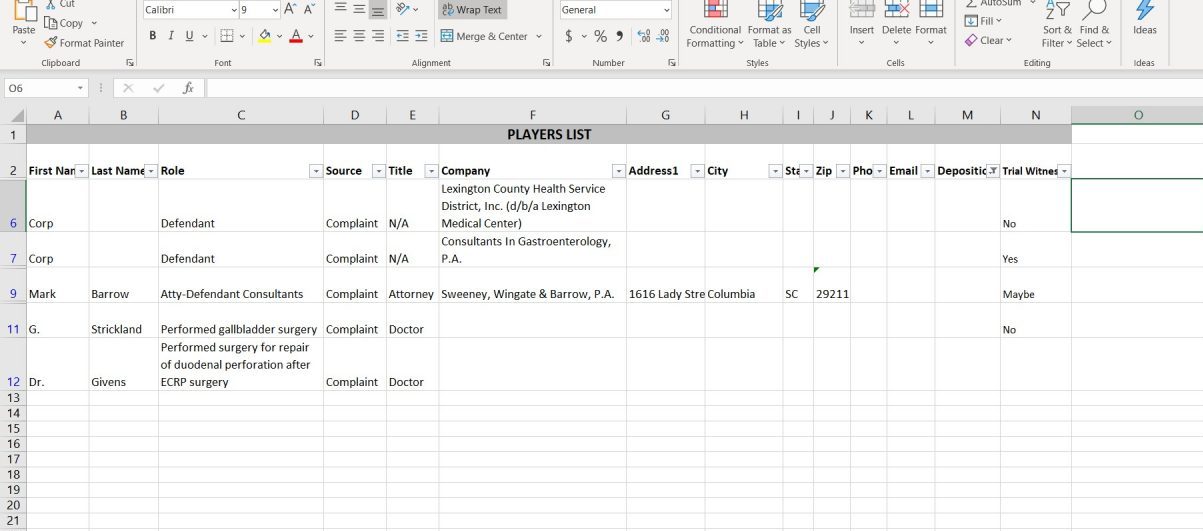A proactive litigation paralegal is a valuable addition to any litigation team. Being proactive is a critical skill needed to succeed as a paralegal.
How can you be a proactive litigation paralegal?
To some attorneys, it might mean that you take some mind-reading classes and learn to read their minds. Most of us are not that talented. Instead, we have to learn to adopt proactive behaviors and try to stay one step ahead of the deadlines.
Litigation Paralegal Boot Camp
Are you tired of being the Panic Mode Paralegal who spends your days playing whack-a-mole with last-minute rush projects because you’re waiting for someone to show you what it takes to be great litigation paralegal?
This is the only program of its kind that provides litigation paralegals with all of the tools to master litigation cases from the complaint through the trial, and everything in between.
You will be the Confident Case Strategist faster than you ever imagined possible.

Being proactive requires three key behaviors:
-
- Anticipatory: acting in advance of a future situation, rather than just reacting.
- Change-Oriented: taking control and causing something to change, rather than adapting to a situation or waiting for something to happen.
- Self-Initiated: do not need to be asked to act, nor require detailed instructions to act.
To be a proactive litigation paralegal, you must know what is going on in all of your litigation cases. How can you anticipate the needs of your attorneys if you don’t know what deadlines coming up in your cases? Instead of waiting for the attorney to ask you to prepare for an upcoming deposition or a summary judgment filing, you could start working on those projects well in advance of being asked.

What is a Players List?
A Players List can be a proactive tool to help a litigation paralegal manage all of the names that you come across throughout your litigation cases. The Players List also becomes your draft Trial Witness List when you start preparing for trial. A Players List is helpful because you will have all of the key witness information available at your fingertips throughout the life of a case.
What is a Players List? It is a list of all of the people involved in the case, whether they are a witness, opposing counsel, paralegal, or other people who have a role in the case.
How to Start a Players List
To start a Players List – For every pleading, discovery response, interview note, documents produced, and deposition transcript that comes in on the case, you’ll want to extract all names into an Excel spreadsheet with the following fields of information:
-
- First Name
- Last Name (have each column contain the least amount of information possible so that you can quickly sort and filter the entire spreadsheet)
- Role (their role in the case, not their job title)
- Source (where you’re getting their name from)
- Street Address (makes it easy for service of process later on)
- City
- State
- Work Phone
- Mobile Phone
- Job Title
- Interviewed
- Deposition Date
- Trial Witness
Why have a Players List?
By having all of the names and information in one place, you will also have a list ready when the attorney wants to decide who needs to be interviewed, deposed, or subpoenaed for trial. And because cases can last for years, you’ll be able to quickly answer the attorney’s question, “who is Jay Smith, and why is he on the opposing counsel’s witness list?”
Additionally, since you’re reviewing each of the pleadings and discovery responses as they come in on the case, you will know about upcoming deadlines and be able to proactively assist the attorney by having more time to prepare for those deadlines. For example, after reviewing the new pleadings filed each day, you know that there is a deposition of one of the parties coming up next month. Now you can get started on preparing the deposition prep notebook rather than waiting until the attorney asks you to start gathering documents and things for the deposition.

Another example of how the Players List can help you be a proactive litigation paralegal is using the list to sort and filter by various columns. For example, if the discovery deadline is approaching and the attorney needs to know who still needs to be deposed, you can filter the Players List by a column you’ve identified as Deposition Date. Then select only the blanks to get a filtered list of witnesses who have not been deposed yet. See the screenshot below.
Step 1: Turn on the filter

Step 2: Click the column to filter

Step 3: Report on who has not been deposed

If you are not comfortable using Microsoft Excel, check out this video on 3 Excel Tips for Paralegals.
Adopting this proactive litigation paralegal tool will be much more productive than that mind-reading class! If you want to learn how to proactively move your cases forward during the discovery phase of litigation, our Litigation Paralegal Boot Camp will do that for you.
Meet the Author

Ann Pearson is the Founder of the Paralegal Boot Camp, and host of the Paralegals on Fire! Podcast Show, and passionate about promoting the paralegal profession.
Ann spent 20 years working as a paralegal manager and a litigation paralegal before opening the Paralegal Boot Camp in 2010.
Ann’s training programs focus on adding immediate value to a paralegal’s career and bridging the gap between what a paralegal learns in school and what they actually do on the job.
Visit the About Us Page to learn more about why Ann started the Paralegal Boot Camp.

























